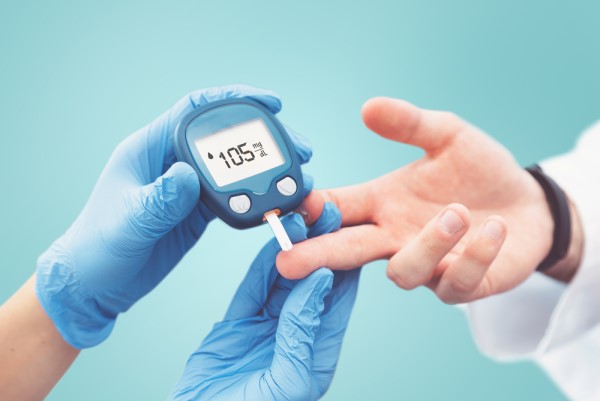Introduction
Defining Diabetes
Diabetes is a chronic health circumstance characterised by excessive degrees of glucose in the blood. It happens while the body both doesn’t produce enough insulin or cannot effectively use the insulin it produces. Insulin is a hormone that regulates blood sugar, crucial for converting glucose into energy.
Relevance and Importance
Diabetes is a international fitness disaster affecting thousands and thousands of humans worldwide. Understanding this sickness is vital because it has sizable implications for standard health and high-quality of life. Proper control can save you headaches and enhance existence expectancy.
Types and Categories
Type 1 Diabetes
Type 1 diabetes, also referred to as juvenile diabetes, is an autoimmune situation wherein the immune machine attacks insulin-producing beta cells inside the pancreas. This kind is normally identified in kids and young adults.
Type 2 Diabetes
Type 2 diabetes is the most commonplace shape, occurring when the frame becomes proof against insulin or doesn’t produce sufficient. It is often related to weight problems and a sedentary life-style and usually develops in adults.
Gestational Diabetes
Gestational diabetes occurs for the duration of pregnancy and commonly disappears after childbirth. However, it increases the hazard of growing kind 2 diabetes later in existence.
Other Specific Types
Other particular types of diabetes consist of monogenic diabetes syndromes, which includes neonatal diabetes and adulthood-onset diabetes of the young (MODY), and secondary diabetes because of other situations or medicines.
Symptoms and Signs
Common Symptoms
Frequent urination
Increased thirst and starvation
Unintended weight loss
Fatigue
Blurred vision
Uncommon Symptoms
Slow-recovery sores or common infections
Areas of darkened skin, in particular across the neck and armpits
Tingling or numbness in palms or feet
Causes and Risk Factors

Biological Factors
Genetics play a essential function in diabetes. Family history of the disease will increase the danger. Additionally, autoimmune responses make a contribution to kind 1 diabetes.
Environmental Factors
Lifestyle elements, including food regimen and bodily pastime, appreciably have an effect on the improvement of kind 2 diabetes. Environmental pollutants and infections might also play a function.
Lifestyle Factors
Obesity, bad weight loss program, bodily inactivity, and smoking are primary threat elements for kind 2 diabetes. High blood pressure and atypical cholesterol levels further increase the hazard.
Diagnosis and Tests
Blood Tests
Fasting Plasma Glucose Test (FPG): Measures blood sugar after an overnight rapid.
A1C Test: Provides average blood sugar degrees over the past two to three months.
Oral Glucose Tolerance Test (OGTT): Measures blood sugar earlier than and after ingesting a glucose-rich beverage.
Additional Tests
Random Blood Sugar Test: Checks blood sugar at any time without fasting.
Autoantibody Tests: Used for diagnosing type 1 diabetes by using detecting antibodies that assault insulin-producing cells.
Treatment Options
Medical Treatments
Insulin Therapy: Essential for kind 1 diabetes and occasionally utilized in type 2 diabetes.
Oral Medications: Various tablets like metformin help control kind 2 diabetes.
Injectable Medications: Non-insulin injectables that assist manage blood sugar stages.
Therapies
Nutritional Counseling: Personalized weight loss plan plans to manage blood sugar.
Physical Therapy: Exercise applications tailored to character needs.
Behavioral Therapy: Support for life-style adjustments and dealing with the sickness.
Lifestyle Adjustments
Healthy Eating: Balanced food plan wealthy in end result, vegetables, whole grains, and lean proteins.
Regular Physical Activity: At least a hundred and fifty minutes of slight aerobic pastime in line with week.
Weight Management: Achieving and maintaining a healthful weight.
Preventive Measures
Tips and Strategies
Regular Screening: Early detection through ordinary blood sugar checks.
Healthy Lifestyle: Maintaining a balanced food plan and regular workout.
Education and Support: Diabetes education applications and support companies.
Personal Stories or Case Studies
Real-existence Implications
Sharing tales of people managing diabetes gives insight into the each day demanding situations and successes. These narratives offer inspiration and practical suggestions for others.
Expert Insights
Quotes from Medical Professionals
Healthcare professionals offer precious recommendation on managing diabetes, emphasizing the importance of a comprehensive method that consists of medicine, lifestyle adjustments, and normal tracking.
Conclusion
Summary of Key Points
Understanding diabetes, its sorts, signs and symptoms, reasons, and remedy alternatives is critical for powerful management. A proactive technique regarding wholesome lifestyle alternatives and ordinary medical care can drastically enhance results for the ones dwelling with diabetes.



